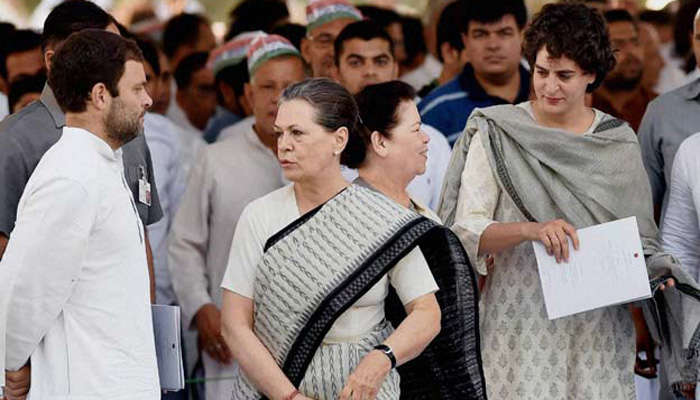“Give a man a fish, and you feed him for a day. Teach a man to fish, and you feed him for a lifetime.”
This quote does an apt job in summarizing the fierce battle in the 2019 general election between two biggest national parties in India, the Congress, and the BJP. On one side of the spectrum stand Rahul Gandhi and the Congress with their Nyuntam Aay Yojana, or NYAY on the other side Narendra Modi and the BJP stand with their agenda of bringing a large part of the population out of poverty by driving growth in industry and development.
NYAY, which promises to provide Rs 72,000 annually or a flat, uniform amount of Rs 6,000 per month to the poorest Indian families, has been called out by many as just an ‘electoral gimmick’. NYAY targets the poorest 20 percent of Indians, or about five crore families. However, NYAY with its overtly socialist overtones is believed to be a huge burden of Indian economy if implemented.
Congress party has always believed in dole-out based politics. By providing handouts to the masses, the Congress party created a modern feudal system where the subjects had to depend on the state for maintaining subsistence level. However, the dole-out based politics ensured that the masses would never develop self-sufficiency and thus would be dependent on the state for subsistence. This model perpetuated poverty and ensured a solid vote-bank for the Congress party.
This excerpt from an interview published in Firstpost also points toward the shortcomings in Congress’ campaign to propagate its NYAY scheme. The following is an interaction of the journalist with various people on the ground.
“We do not have TV,” said Sasikala(villager). “How would we know what Congress has promised? Can you please tell us the details?”
I(journalist) give the brief outline. “How would they arrange for so much money?” she immediately asked.
“The Congress has not divulged details,” I told her.
She(Sasikala) shrugged her shoulders.
This interview with common folk is just one of the many instances where people are either unaware of NYAY or have reservations about its execution. In short, the NYAY scheme has failed to resonate with the voters.
The reservations of citizens are correctly placed. The Congress for a large part of its rule in India has been banking on the slogan to remove poverty and has been perpetually misleading the poorest sections in India into supporting their political ambitions. NYAY scheme also reeks of the same intentions. The 2014 general elections saw Congress being reduced to its lowest tally of just 44 seats in Lok Sabha and the current general election has also been forcing Congress into indulging in desperate tactics.
NYAY fails to connect with the aspirational voters who have moved beyond ‘Roti, Kapda and Makan’ and looking for better opportunities and for this they want self-sufficiency not dependence on state hand-outs.
Congress has been called out multiple times for their appeasing promises either to the minority groups or the economically weaker sections of the society. However, the middle class is left behind to feel the burn of these poll gimmicks.
Economist Abhijit Banerjee, the brain behind Congress’ NYAY scheme had admitted that the taxes on the middle class would be increased to fund the scheme. In an interview with Rahul Shivshankar of Times Now he categorically said, “No NYAY without tax increase.” Indicating towards a tax increase to fuel agenda driven electoral promises is sure not to go down well with the middle class.
Congress’ hasty decision to introduce NYAY in the campaign and the colossal failure to justify the scheme only adds links to the long chain of shortcomings in the Congress’ campaign for the 2019 general election. NYAY is also believed to ultimately lead to inefficiency in the workforce by giving a provision for assured income without any labor provisions. Congress’ lackluster attitude to clarify the scheme only substantiates the claims that NYAY is just meant to be an electoral gimmick with no sound basis or practicality of implementation.
